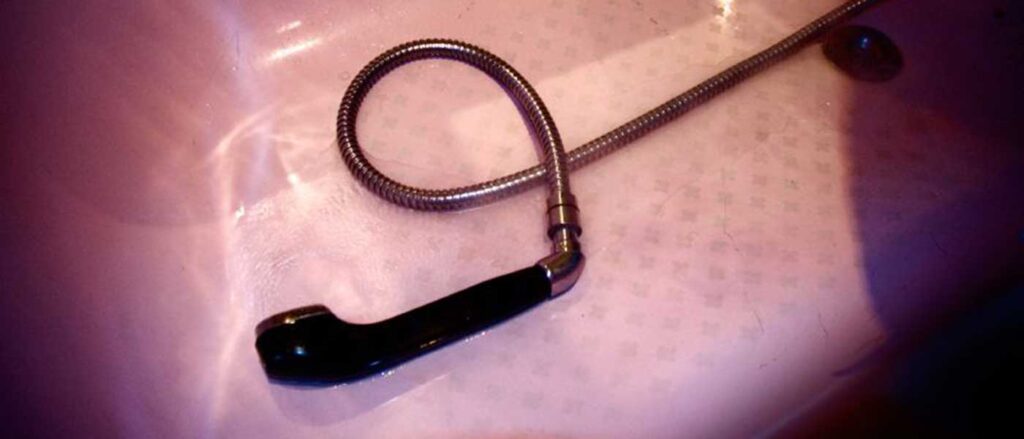May the Stars Guide You Safely Home
After I call the cops to ask for a protective order
I read about the girlfriend of a serial killer. What she knew,
what she didn’t. How it seems we’re always punished
for asking questions. America is watching a show
about a man who is fascinating. His eyes ice
behind the fog of his glasses.
Such a nice guy. Such a quiet guy. The flooded house.
I don’t care about him. I want to say their names:
Ann Bryan. Katherine Ann Hall.
Hardee Schmidt. Joyce Williams.
Lillian Robinson. Marilyn Nevil.
Johnnie Mae Williams. Donna Bennett Johnston.
When I call the cops
I hold my arm like a seatbelt. When I call the cops
a woman answers. Hand over chest like an elementary
school lie: the pledge, the flag, the wrong math.
The girlfriend rode in the car and didn’t know
about the woman in his trunk. Not two people there,
but three. When I call the cops the officer speaks like an aunt,
Honey, don’t you know this only makes it worse?
The law provokes, a split tongue made of amendments.
As a child I used to dream
of walking down my city street, past the newspaper
stand, to our corner house with its porthole window,
the garage that spilled open like a mouth. I’d ring
the doorbell and another mother would answer, her children
like impressions of me. I thought I lived there.
The system is turning me to sand.
Honey, if I were you I’d sit tight, get a gun. The killer’s girlfriend
killed a man once. The author of the book about the killer
says she liked the feeling of being desired.
He might as well say she was asking for it.
A biker in a Sons of Silence jacket broke a pool cue
over the girlfriend’s back so she fought and then she was fighting
not a man but an idea, not one thing but many,
and then the man was dead. She carried
his photo in her wallet for years. We’re watching the show
of America because we want to win.
To win means kill and not be killed.
This helps the system. The court believes the bad actor.
Before I call the cops I call a domestic abuse advocacy center.
They say conflict of interest. They say he got there first.
I try to say it’s all backwards.
I try to say please listen to me.
The night of the hearing I awake thinking
I am the girlfriend, the silence of the trunk
an ocean. It takes hours to rise, to gather myself,
part by part, pulling the truth from the dark.
This is my face. This is my name.
Someone loves me.
My voice is animal in the courtroom microphone.
Behind the judge, the sideways prison of the flag.
The Pink Bathroom
Rose Fishman, found dead in her home, March 31, 1942: a crime scene constructed
by Francis Glessner Lee, an investigation training exercise for detectives.
Rose Fishman is a doll.
Rose Fishman is the reflection of a doll
in the pink bathroom’s mirror.
Rose Fishman is dressed like an old woman
in the pink bathroom’s mirror.
Rose Fishman hates her old womanness
so ends it. Or Rose Fishman is ended by a man,
his own mother reflected in the injured glass.
Why is she a mirror? He wants you
to look at his hate through her eyes in the mirror.
Rose Fishman is just a doll
dressed like an old woman
painted to look like she is dead.
burnt umber for the purge fluids
pointillismed with the smallest paintbrush
under the fishbowl of a magnifying glass
the cloth body the robe an envelope
the tangle of the doll’s triangled arms
extra stuffing for ankle bloat
black hair askew the eyes can’t see
Rose Fishman is captured
in the pink bathroom
cops mooning their pearly cheeks
over the surface of her privacy.
pink crinoline curtains pink tiebacks
the round pink rug a fringed bandage
salmon marbled sink
and the mirror and Rose in the mirror
roses and fish repeating until everything is ripcurl
ripcurl of roses and fish in the vanity mirror
the sink mirror door mirror and through the closed window
the waves pound their whitening fists
This, the whirlpool of self-hate
Rose Fishman in her standstill age
the cops studying women
like painted relics, ogling through glass,
their distorted fish eyes: hundreds, blinking.
Rose Fishman cared about her slippers.
Rose Fishman perfectly folded her pink towels.
Rose Fishman was found this way
by the doorman, her mail collecting dust,
her powder puff, her doilies, her pink fishbowl.
(The real Rose Fishman hated doilies. Let us honor the facts.)
Rose Fishman wore a blue robe.
Rose Fishman was neither a rose nor a fish
is the water so Rose Fishman is everywhere.
Attic
Miss Jessie Comptom, found dead Tuesday, December 24, 1946: a crime scene constructed
by Francis Glessner Lee, an investigation training exercise for detectives.
Yes, I listened to the records,
read the old letters in the box.
The dead never get any privacy
once they are bodies like me.
My humiliation teeters above the chair
in the attic so yes it lives on earth.
Yes, I hung the laundry on the ceiling
because it was raining and yes
I was thinking of the miller’s
daughter but never the bad golden man —
Yes he said he loved me, so what.
He lives in Buffalo with his real family.
Yes I am dressed as a grandmother.
Yes, a costume: the shawl, the gray bun.
Yes I am old but I don’t think
you know what that means.
I know how to tie a knot.
I spent many good days sailing. Still do.
Yes one of my shoes was found on the stairs.
Yes my other shoe dangles from my cotton ankle.
Shoes cannot fly.
A person cannot be killed alone.
I won’t tell you who did this to me.
I am not talking to you
except through my body
which I give you to decode.
A Joke
I walk with my friend into an antique store.
Two men stand by a Victrola, one in camouflage,
one in overalls. They drag their eyes over us.
The one in overalls leans against a display of dead instruments
and I begin to understand the possibilities of my skin.
The fact of his knife in the belt loop.
The it of me tolls in my head. Come here, he says,
come here, he says. Some men like to put their hands
around your neck when they fuck you.
A little joke about murder, a little game of power.
In a dream my lover poses
for a family portrait in my house with the woman who used to be
his wife. I am teaching his daughter to read. In the bedroom mirror
the place where my eyes should be is nothing. Skin.
The man in camouflage
and the one in overalls examine a pair of dolls
with straw that dangles from their mouths.
They are supposed to be Tom and Huck, faces
dotted with orange freckles. Tom doll wears whitewash
all over his pants. The men turn the cloth of themselves
over in their massive hands. Farm murder brothers, my friend says to me.
In the dream with no eyes
I go to a marketplace. A man takes me to his tent.
He closes the flaps. He takes his box of tools. He aims
his box cutter at the skin of my neck. He does not have to try
very hard. It does whatever it is told, this thing that can separate
me from my body. The joke is that I do not really live
in this body. When I turn the knife on him, his eyes go, too.
Two women with skin for eyes
walk into a bar. They can see only shades or shadows.
One of them whispers her joke in the other’s ear.
This is a game of overalls. A joke about power.
Two men walk into a bar.
Everyone orders chicken wings and wine.
My friend stands before me baring her teeth.
Two men live inside my mind as one monster.
I read true crime to learn escape. Inside the chest
of the monster lives the punch line: I can make you love me.




